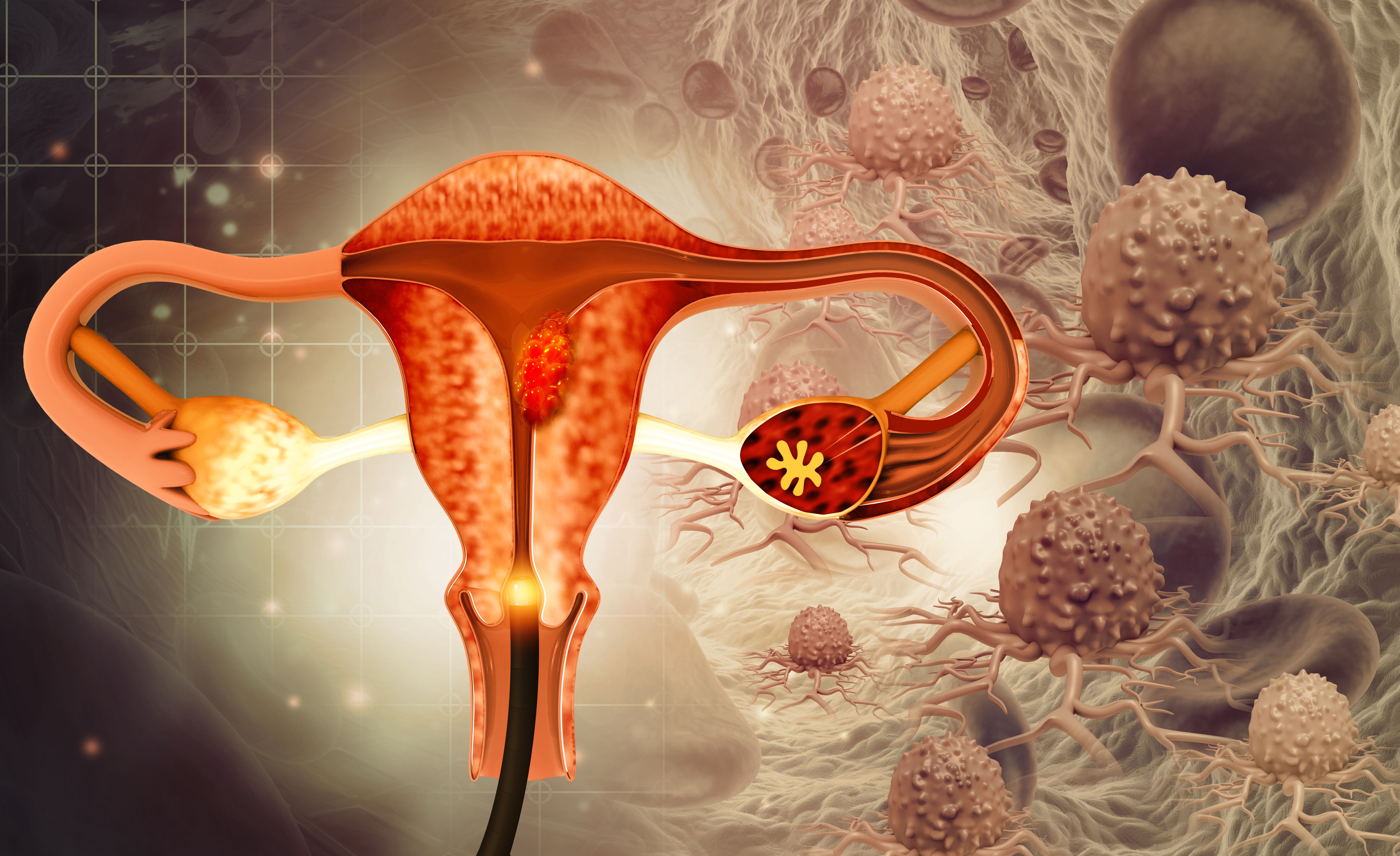FDA Okays FTD of IDE161 in BRCA1/2-Mutated Ovarian Cancer
Findings from a phase 1 support the fast track designation given by the FDA to IDE161, a potent, selective, small-molecule inhibitor of PARG, for patients with BRCA1/2 mutant ovarian cancer.
- This fast track designation (FTD) allows for a quicker regulatory review process for the IDE161 development program, including potential eligibility for accelerated approval and priority review.
- IDE161 is currently being evaluated in a first-in-human trial for patients with solid tumors with homologous recombination deficiency (HRD).
- Soon, the expansion portion of the phase 1 study will evaluate IDE161 in patients with HRD-positive associated breast cancer and ovarian cancer, as well as a basket of other selected solid tumors.

The FDA has granted a FTD to IDE161 for adult patients with BRCA1/2-mutated, advanced, or metastatic ovarian cancer who are platinum resistant and have received prior antiangiogenic and therapy with a PARP inhibitor.1
"We are extremely pleased to receive the [United States] FDA fast track designation for IDE161 based on the FDA's review of preclinical and emerging clinical efficacy and tolerability data. We recently reported preliminary clinical proof-of-concept with expansion into priority HRD-positive solid tumor indications in our phase 1 clinical trial. The fast track designation has been provided for platinum-resistant BRCA1/2 mutant advanced or metastatic ovarian cancer, which represents a serious condition, and acknowledges the potential for IDE161 to treat this indication," said Darrin Beaupre, MD, chief medical officer at IDEAYA Biosciences, in a press release.
IDE161 is a potent, selective, small-molecule inhibitor of PARG with a mechanistically-differentiated target in the clinically-validated DNA damage repair pathway. A first-in-human, phase 1 trial is currently evaluating IDE161 (NCT05787587) and its safety, tolerability, pharmacokinetic and pharmacodynamic properties, and preliminary efficacy for the treatment of patients with solid tumors with HRD.
Gynecologic Cancer Illustration: © Crystal Light - stock.adobe.com

Patients aged 18 years or older with advanced or metastatic solid tumors, excluding primary central nervous system tumors, who have documented evidence of genetic alterations conferring HRD and have progressed on at least 1 prior line of therapy in the advanced or metastatic setting that is considered an appropriate standard of care, or for which the participant has documented intolerance are eligible for enrollment in the study.2
The primary end points for the dose-escalation portion of the study were to characterize the safety and tolerability of IDE161, and secondary end points included evaluating the preliminary tumor activity, pharmacokinetics, and pharmacodynamics.
According to early clinical data observed in the dose-escalation cohorts of the study, there was preliminary tumor shrinkage in multiple patients having solid tumors with HRD, including a patient with BRCA 1/2-mutated endometrial cancer.1 With these positive data, investigators will expand their research on IDE161 into priority tumor indications while also continuing the evaluation of the optimal move-forward dose for the phase 2 expansion portion of the phase 1 study.
In the expansion portion of the trial, patients with HRD-positive associated breast cancer and ovarian cancer will be included. There will also be a basket of other selected solid tumors evaluated in the trial. Among patients with breast cancer, the focus is on estrogen receptor (ER)-positive, HER2-negative tumors with HRD.
Investigators will further assess the safety and tolerability, and preliminary anti-tumor activity using duration or response and overall response as primary end points in the dose-expansion portion of the study, along with secondary end points of pharmacokinetics and pharmacodynamics.
REFERENCES:
IDEAYA receives fast track designation for potential first-in-class PARG inhibitor, IDE161, for treatment of pretreated, platinum-resistant advanced or metastatic ovarian cancer patients having tumors with BRCA1/2 mutations. News release. IDEAYA Biosciences, Inc. September 26, 2023. Accessed September 26, 2023. https://tinyurl.com/fmnns4dd
A study of PARG inhibitor IDE161 in participants with advanced solid tumors. ClinicalTrials.gov. Updated March 28, 2023. Accessed September 26, 2023. https://tinyurl.com/5n88hswb
Avutometinib/Defactinib Leads to Positive Response, Survival Data in Ovarian Cancer
October 18th 2024The completion of a new drug application for the combination of avutometinib and defactinib in KRAS-mutant ovarian cancer is expected to be finalized with the FDA by the end of the month.
Read More